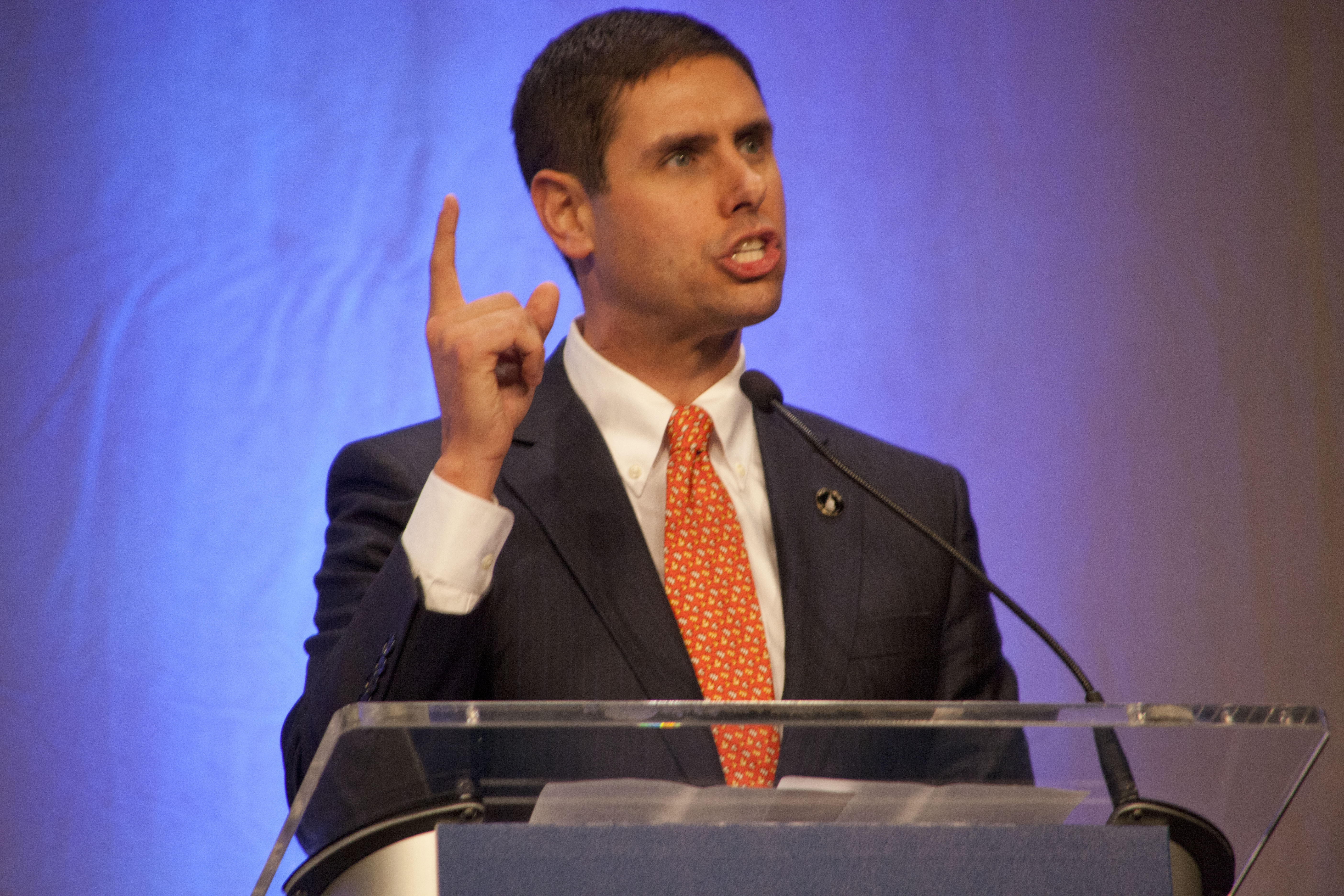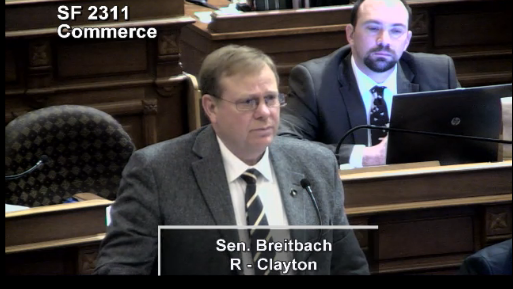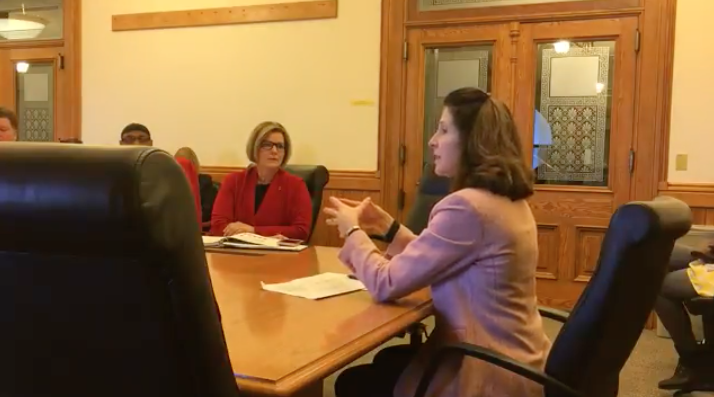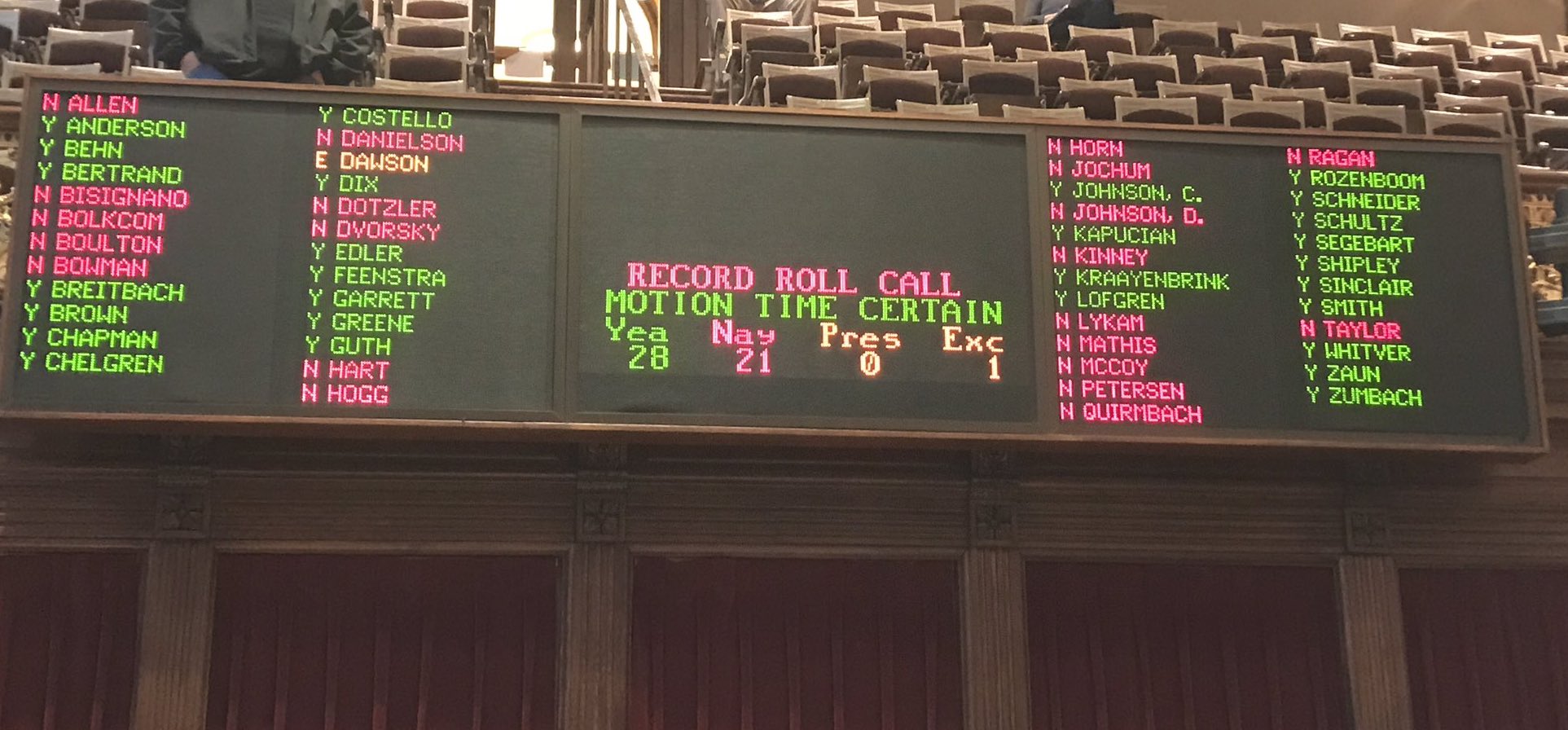The Iowa Senate convened for its 2019 session on January 14 with 32 Republicans and 18 Democrats. A record eleven senators are women (six Democrats and five Republicans), up from six women in the chamber at the start of the last legislature’s work.
I enclose below details on the majority and minority leadership teams, along with all chairs, vice chairs, and members of standing Iowa Senate committees. Where relevant, I’ve mentioned changes since last year’s legislative session. Note that Democratic Senator Nate Boulton will serve on committees after all. Minority Leader Janet Petersen had declined to assign him to any committees last month.
A few words about demographics: all current state senators are white. To my knowledge, the only African American ever to serve in the Iowa Senate was Tom Mann, elected to two terms during the 1980s. No Latino has ever served in the Iowa legislature; in 2014, Nathan Blake fell 18 votes short of becoming the first. No Asian American has served in the Iowa Senate since Swati Dandekar resigned in 2011.
Some non-political trivia: the 50 Iowa senators include two Smiths (a Democrat and a Republican) and two Taylors (both Democrats). As for first names, there are three Marks, three Zachs, and two men each named Dan, Jim, Tim, Tom, and Jeff.






















